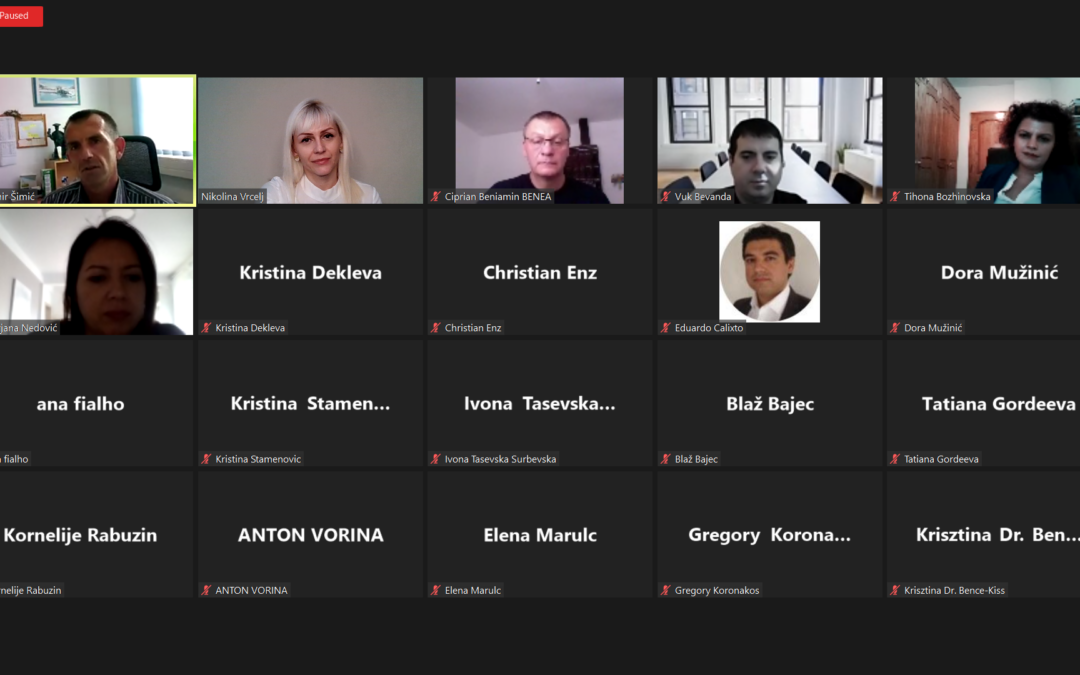Nenad Dugalić – Business School of Vocational Studies, Gradski park 2, Belgrade, Serbia
DOI: https://doi.org/10.31410/ITEMA.2021.37
5th International Scientific Conference on Recent Advances in Information Technology, Tourism, Economics, Management and Agriculture – ITEMA 2021, Online/virtual, October 21, 2021, CONFERENCE PROCEEDINGS published by the Association of Economists and Managers of the Balkans, Belgrade; Printed by: SKRIPTA International, Belgrade, ISBN 978-86-80194-51-6, ISSN 2683-5991, DOI: https://doi.org/10.31410/ITEMA.2021
Abstract
Neoliberalism rejects a society based on tradition, encourages the weakening of state institutions and especially undermines the system of social protection through poorly implemented privatization and thus creates ideal conditions for international corporations to acquire huge capital. This leads to the fact that the state and state bodies can no longer perform their role of regulators on the national market, but practically serve the interests of large international corporations.
In recent years, modern society has witnessed the expansion of global crises manifested through climate changes, the imbalance of the global economy and other inequalities, which ultimately through economic poverty leads to an explosion in nature that manifests itself in global pandemics such as this one today. All this requires a special approach and the development of long-term strategies in order to avoid such crises in the future or at least reduce them to the level of tolerability.
Keywords
Government; Neoliberal economy; Consumption; Pandemic
References
Barrett, J. (2016). Is the citizen-consumer the future taxpayer? J. Aust. Tax Teach. Assoc., pp. 57–84.
Biebricher, T. (2015). Neoliberalism and Democracy. Constellations, pp. 255–266.
Chomsky, N. (2002). Profit over People: Neoliberalism and the Global Order. M.: Praxis, S. 138.
Goodman, Douglas J., & Mirelle C. (2004). Consumer Culture. ABC-CLIO, Santa Barbara, CA, pp. 39-40.
Harvey, D. (2007). A Brief History of Neoliberalism; Oxford University Press: Oxford, UK, pp. 1–247.
Hay, C. (2007). Why We Hate Politics; Polity: Cambridge, UK, pp. 90–122.
International Monetary Fund (IMF). (2020). Policy responses to COVID-19, 13 August. Available at: https://www.imf.org/en/Topics/imf-and-covid19/Policy-Responses-to-COVID-19#
Kotler, P., Dipak, J., & Maesincee, S. (2002). Marketing Moves: A New Approach to Profits, Growth and Renewal; Harvard Business School Press: Boston, MA, USA.
Lapavitsas, C. (2020). This crisis has exposed the absurdities of neoliberalism. That doesn’t mean it’ll destroy it. Jacobin, 27 March. Available at: https://www.jacobinmag.com/2020/03/ coronavirus-pandemic-great-recession-neoliberalism
Mankiw, G. (2020). ‘Thoughts on the Pandemic” http://gregmankiw.blogspot.com/2020/03/ thoughts-on-pandemic.html
Policy Brief (2020), „ The Impact of COVID-19 on older persons“, United Nations, available at: www.un.org/sites/un2.un.org/files/un_policy_brief_on_covid-19_and_older_persons_1_ may_2020.pdf
Solty, I. (2020). The bio-economic pandemic and the western working classes. SP: The Bullet, March 24. Available at: https://socialistproject.ca/2020/03/bioeconomic-pandemic-and-western-working-classes/
Sorokin, P. (2009). The crisis of our age. Social and cultural review / ISPI RAN. M., S. 229.
Woolhouse, M. E. J., & Gowtage-Sequeria, S. (2005). ‘Host Range and Emerging and Reemerging Pathogens’, Emerging Infectious Diseases 11(12), pp. 1842-1847 (DOI: 10.3201/ eid1112.050997).
Woolhouse, M. E. J., et al., (2001). ‘Risk factors for human disease emergence’, Philosophical Transactions of the Royal Society of London. Series B: Biological Sciences 356(1411), pp. 983-989 (DOI:10.1098/rstb.2001.0888).





